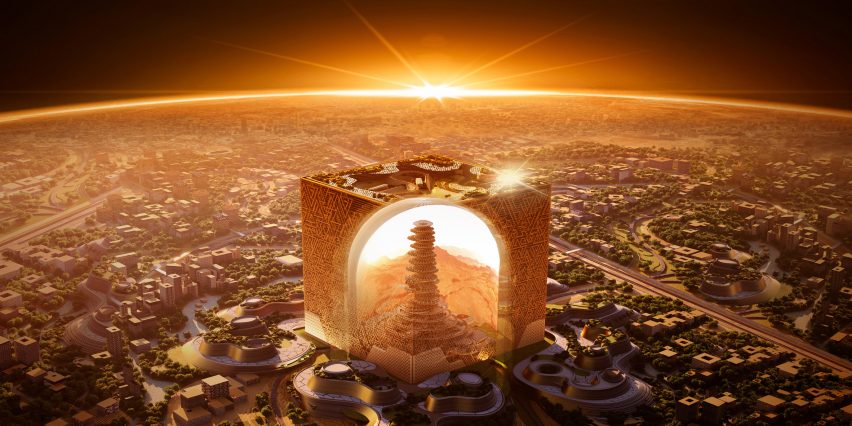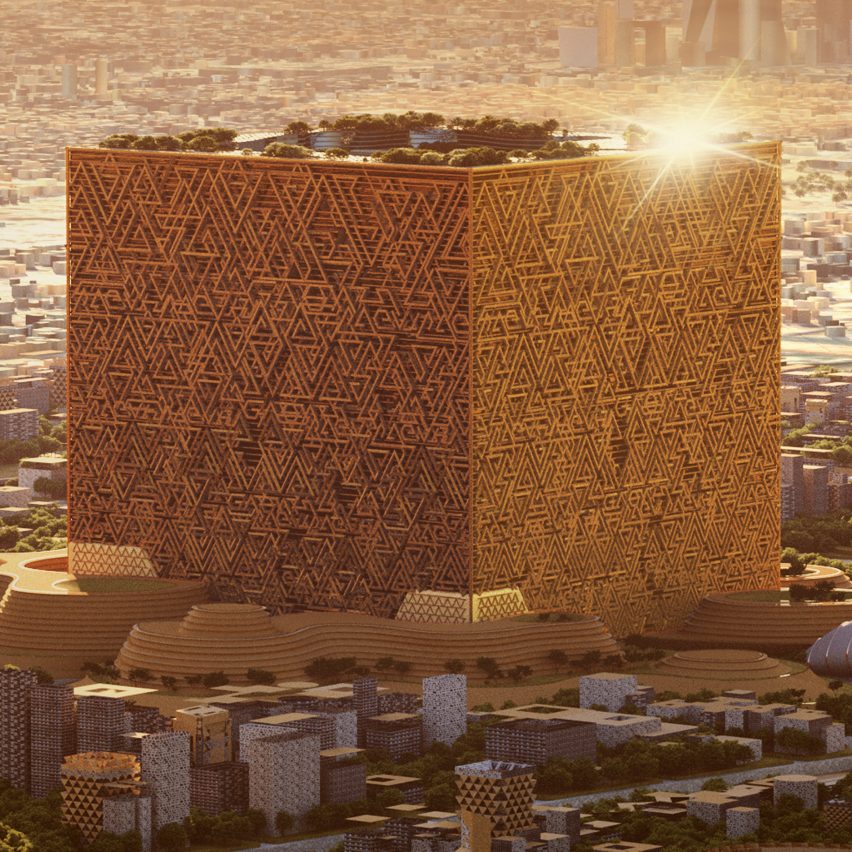Saudi Arabia unveils giant cube-shaped supertall skyscraper for downtown Riyadh
The Saudi Arabian government has announced plans to build a 400-metre-high cube-shaped skyscraper named Mukaab as part of its Murabba downtown plan in Riyadh.
Set to be built to the northwest of central Riyadh, the 19-square-kilometre development is being planned as a new downtown area for the Saudi capital city.
Described as the "new face of Riyadh", it will be built around the Mukaab structure, which will be "one of the largest built structures in the world".
The structure will be 400 metres high, making it officially a supertall skyscraper, and 400 metres long on each side. It will become the tallest building in the city.

The cube-shaped building will be enclosed in a facade made of overlapping triangular forms that was informed by the modern Najdi architectural style.
It will contain two million square metres of shops, cultural and tourist attractions and have an almost full-height atrium space that will contain a spiralling tower.
The Mukaab skyscraper forms part of the wider Murabba district announced by Saudi crown prince Mohammad bin Salman, chairman of the newly formed New Murabba Development Company.
The wider development will contain over 100,000 residential units and 9,000 hotel rooms along with more than 980,000 square metres of shops and 1.4 million square metres of office space.

It will also include 80 entertainment and culture venues, technology and design university, a multipurpose immersive theatre and an "iconic" museum.
According to the Saudi Arabian government, the project is set to be completed by 2030.
It is one of several mega projects currently being developed in Saudi Arabia funded by its Public Investment Fund as part of the Saudi Vision 2030 plan to diversify the country's economy. The best-known, and most controversial, being Neom. We recently published a piece explaining the key details of the development, which includes the 170-kilometre-long The Line megacity.
The project has been criticised for its environmental impact and alleged human rights abuses connected to the development.
Speaking to Dezeen, Amnesty International's Peter Frankental said that companies working on Neom were facing a "moral dilemma" and should "think twice" about their continuing involvement in the project.